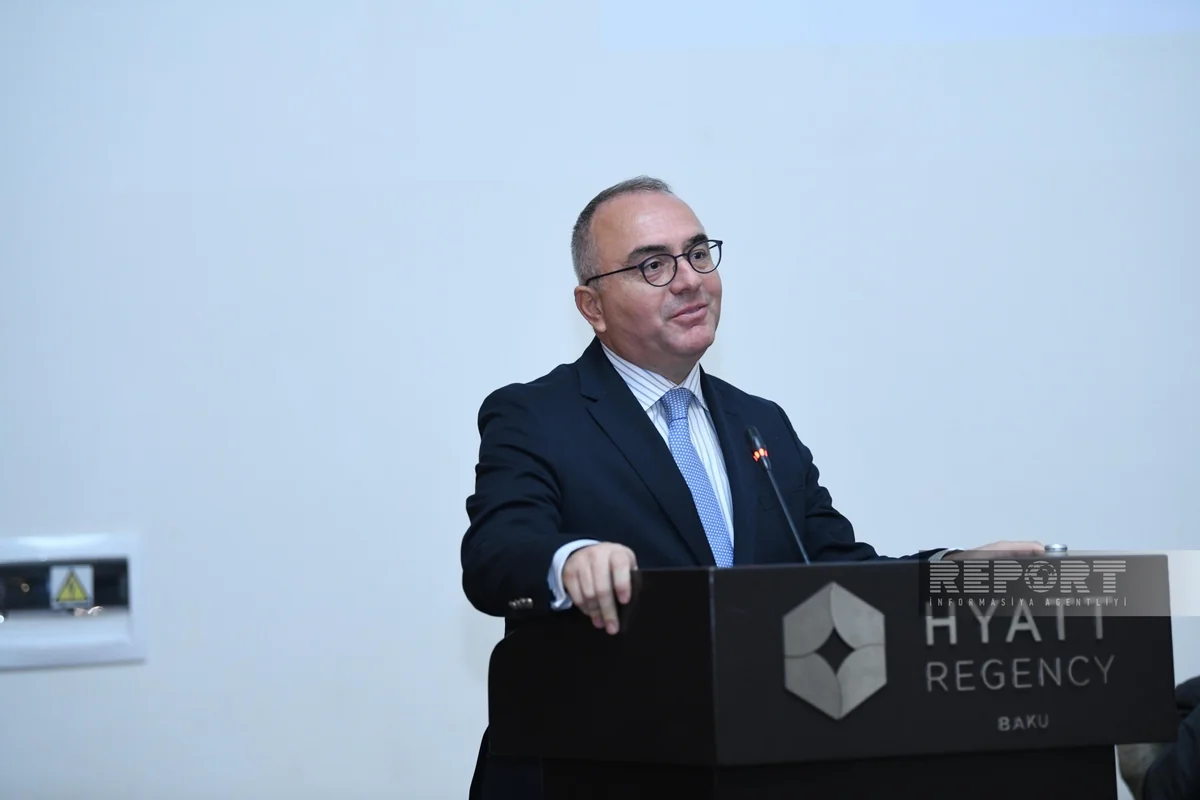Vice-Rector of Kadir Has University: Armenian diaspora, opposition obstruct peace process dev’t
- 10 December, 2024
- 09:52

A panel session themed Changing Constitutions for Peace - International Experiences, was held as part of the international conference titled "The Main Obstacle to the Peace Agreement between Azerbaijan and Armenia", organized by the Center of Analysis of International Relations (AIR Center),, Report informs.
Among the speakers, former UK Ambassador to Azerbaijan James Sharp discussed Ireland's peace experience within the panel's framework.
He noted, "The Belfast Agreement, signed on April 10, 1998, was a remarkable achievement that ended 30 years of conflict in Northern Ireland. The agreement was ratified in two referendums held on May 22, 1998, resulting in the restoration of self-government in Northern Ireland."
Another panelist, Mitat Celikpala, Vice-Rector of Kadir Has University in Türkiye, pointed out that Armenia's constitution also contains territorial claims against Türkiye, along with Azerbaijan:
"Armenia has a chance to achieve lasting and final peace, which can be ensured in the South Caucasus. The Armenian constitution includes territorial claims against Türkiye, along with Azerbaijan. These give the right to demand constitutional amendments. Türkiye recognized Armenia's independence but closed its border with Armenia due to the Karabakh issue. In 2010, the parliaments of Armenia and Türkiye adopted a document stating that the borders between the two countries should be determined based on international law, referring to the current borders. However, the Armenian diaspora has taken the issue in a different direction. Critical interventions by the Armenian diaspora and opposition are observed, hindering the process's development. Nevertheless, we hope that relations between Armenia and Türkiye will fully normalize, in addition to Armenia-Azerbaijan relations."
Zidas Daskalovski, Director of the School of Public Policy (Tereza Ana) supported by the Council of Europe, stated that the agreement between North Macedonia and Greece was also achieved through constitutional amendments: "Azerbaijan and Armenia can also conclude a treaty, and the opposing party can undertake constitutional changes within the framework of this treaty, for which a certain amount of time should be allocated."
The liberation of Azerbaijan's territories from Armenian occupation in 2020 and 2023 and the full restoration of sovereignty have created opportunities for peace between the two countries. However, Armenia's territorial claims against Azerbaijan persist in the Constitution and other legislative acts.
Armenia's Declaration of Independence, adopted on August 23, 1990, refers to the act of the Supreme Soviet of the Armenian SSR dated December 1, 1989, which considers Karabakh as an integral part of Armenia. This claim was later reflected in the preamble of the Constitution adopted on July 5, 1995, and was retained during the amendments to the Constitution on November 27, 2005, and December 6, 2015.
